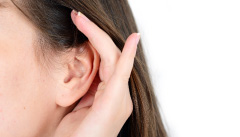Bronchitis
Bronchitis is a condition when the bronchi, the passages that carry air from the windpipe to and from the lungs, become inflamed.
Bronchitis is a common lower respiratory tract condition, often following a common cold and appearing in children less than five years of age. In many cases, bronchitis is acute, or short-lasting (less than three weeks) and self-limiting. Sometimes it can be chronic, persisting for a longer period of time especially in smokers, the elderly, those with chronic diseases, or those with a compromised or weakened immune system.
What Are the Symptoms of Bronchitis?
Symptoms of bronchitis may include:
- Cough with excessive mucus and phlegm (which may be colored)
- Runny nose
- Sore throat
- Headaches and generalized aches
- Fatigue and tiredness
- Mild fever
- Shortness of breath and wheezing
Symptoms of chronic bronchitis include:
- Cough
- Wheezing
- Shortness of breath and chest tightness
- Recurrent, acute chest infection
More serious symptoms requiring immediate attention include:
- Severe, prolonged cough
- High fever lasting more than three days
- Mucus that is streaked with blood
- Rapid breathing or chest pain
- Drowsiness or confusion
What Causes Bronchitis?
In acute bronchitis, inflammation is usually due to an infection by viruses or bacteria. The same viruses that cause the common cold and upper respiratory tract infection are usually responsible. Infection is transmitted by inhaling the virus suspended in airborne droplets or by direct contact with infected surfaces and placing the hands near the mouth or nose. Irritation and inflammation of the bronchial passage then creates excessive production of mucous. Bronchitis can become chronic due to exposure to environmental irritants, such as smoke, chemical fumes, dust, and pollution.
What Are the Treatment Options?
For acute or short-lasting bronchitis, typical treatment recommendations include resting in bed, drinking plenty of fluids and staying hydrated, and symptomatic treatment for fever using acetaminophen or ibuprofen. Bronchodilators, a type of medication that make breathing easier by relaxing the muscles in the lungs and widening the airways, and cough suppressants may sometimes be needed, although this is not recommended for children younger than six years of age. Antibiotics are not needed except in high-risk groups. If you smoke, you should stop.
For chronic or long-lasting bronchitis, certain lifestyle changes may help improve your condition, such as quitting smoking, using air purifiers at home, wearing protective gear in risky work environments, and avoiding pollution when possible. Medications, such as bronchodilators or mucolytics that make the mucus less thick and sticky and easier to cough up, may also be recommended. Antibiotics may be prescribed in cases with recurrent infections, or oxygen therapy.
Your physician may also want you to get a seasonal vaccination against the flu virus, and/or suggest chest physiotherapy and respiratory rehabilitation from a specialist.
What Questions Should I Ask My Doctor?
- Will you need to perform any diagnostic tests?
- Is it normal for my bronchitis to continue more than one week?
- Can I infect my family or coworkers with bronchitis?
- Are there medicines or antibiotics that might help my condition?
- What if I am a smoker, should I quit?
Burning Mouth Syndrome
Burning mouth syndrome, also known as glossodynia, refers to pain or a hot, burning sensation in the mouth or oral cavity.
Patients usually experience it on the tongue, but some patients feel burning in multiple areas of the mouth, including the lips, top, or bottom of the mouth. As many as 15 percent of the population can experience symptoms at some point in their life, but less than one percent of patients report continuous burning symptoms. It is more common in females and in middle-aged or older patients. Typically, the oral cavity appears normal.
What Are the Symptoms of Burning Mouth Syndrome?
Patients with burning mouth syndrome may experience symptoms including:
- Burning, painful sensation in the mouth (any location)
- Often on both sides (bilateral)
- Dry mouth (occasionally)
- Taste changes (occasionally)
- Tingling or numbness in the mouth (occasionally)
What Causes Burning Mouth Syndrome?
The cause of primary burning mouth syndrome is unknown but thought to be due to an issue with the nerves, called a neuropathy. There may be a hormonal link as almost 90 percent of patients are post-menopausal women. However, the exact link between estrogen and burning mouth syndrome is unknown. Patients with burning mouth syndrome are also more likely to have a psychiatric comorbidity, such as depression or anxiety, but this is not thought to be the cause of the disorder.
It is important to rule out other causes of mouth pain, such as thrush, vitamin deficiencies, medications, and growths or lesions. Some patients with burning in the mouth have a vitamin deficiency so your doctor may recommend lab work for certain vitamins, such as vitamin B, folate, iron, and zinc. Some blood pressure medications, antiretrovirals, and antidepressants can cause oral pain.
Other diseases like oral lichen planus and Sjogren’s disease, which are autoimmune diseases, may be confused with burning mouth syndrome. Uncontrolled diabetes, thyroid problems, and reflux may also worsen burning mouth sensations. It can also be caused by Ill-fitting dentures or teeth grinding. Oral allergies from foods, dental work, or oral care products can also cause burning in the mouth.
What Are the Treatment Options?
Treatment depends on whether a secondary cause is found. Thrush should be treated with antifungal medication, and any vitamin deficiency should be treated with vitamin supplementation. If a medication is suspected to be the cause, an alternative medication may be recommended. However, never stop a medication without consulting with your prescribing doctor first.
Your ENT (ear, nose, and throat) specialist, or otolaryngologist, may need to work with your primary care provider to treat any uncontrolled diabetes or thyroid issues. Switching oral care products can help some patients, and food avoidance may be recommended if a food allergy is suspected. Your doctor may recommend seeing a dentist to make sure there are no issues with dentures or teeth grinding. Reflux medications may be recommended. If dry mouth syndrome is the cause, there are many different treatment options.
Lifestyle changes can help alleviate some of the symptoms of burning mouth syndrome, such as reducing or eliminating alcohol and tobacco products. Certain foods such as spicy or acidic foods can make symptoms worse and should be avoided. Frequent sips of cold water can also help.
If no underlying cause is found, there are some medications that have been found to be effective. Clonazepam, which helps depress the nervous system, is often a “first-line” therapy. Antidepressants, such as paroxetine or sertraline, and gabapentin, a medication that also depresses the nervous system, are sometimes used for burning mouth syndrome. There is disagreement in medical literature if alpha-lipoic acid is beneficial for burning mouth syndrome, but some patients have found it to be beneficial. Certain topical medications such as anesthetics, anti-inflammatory medications, sucralfate, and capsaicin have been used with varying success in patients and may be recommend in certain patients.
Even though there is a hormonal link to burning mouth syndrome, hormone replacement therapy is usually not recommended. Cognitive behavioral therapy or psychotherapy has been shown to be very beneficial in patients with burning mouth syndrome. Your doctor may recommend a consultation with a psychiatrist in certain cases. Fortunately, data suggest that up to 50 percent of patients have some resolution of symptoms without any treatment within a few years of diagnosis.
What Questions Should I Ask My Doctor?
- Is there a secondary cause for my burning mouth?
- Will I need lab work?
- What treatment options are available for my situation?
- What are the risk and benefits of using medications to treat my burning mouth?
- Would you recommend cognitive behavior therapy or psychotherapy for my situation?
Dry Mouth Syndrome
Dry mouth syndrome, also known as xerostomia, is very common and affects up to 30 percent of the population. It is more common in women and patients over the age of 65.
Dry mouth syndrome is often caused by a decrease in saliva from the salivary glands. Not only does saliva provide moisture to the oral cavity, it also helps patients swallow and digest food, protects against reflux, and has antibacterial effects that help prevent oral infections as well as dental disease.
What Are the Symptoms of Dry Mouth Syndrome?
Patients with dry mouth syndrome can develop many symptoms from the lack of saliva in the mouth and may experience:
- Mouth discomfort and dryness
- Burning of the tongue
- Cracked, dry lips
- Bad breath or halitosis
- Difficulty with swallowing or digestion
- Taste changes
- Speech changes
- Increase in dental plaque and cavities
- Thrush infection (also known as candidiasis which is a yeast infection in the mouth)
What Causes Dry Mouth Syndrome?
There are a variety of causes of dry mouth syndrome. Aging leads to decreased salivary flow and can contribute to dry mouth although it is usually not the only cause. There may also be a hormonal component as it is more often seen in menopausal women. Many diseases can cause a decrease in oral saliva. Patients with diabetes, end-stage renal disease, Hepatitis C, Parkinson’s disease, Alzheimer’s disease, and HIV are more likely to have dry mouth syndrome. Patients who have had radiation to the head and neck often have dry mouth syndrome. Patients who smoke tobacco, have dentures, and are chronic mouth breathers are also more likely to experience dry mouth.
There are also over 500 medications that can cause dry mouth. Blood pressure medications, seizure medications, antidepressants, and opioids are some of the most common medications that can lead to dry mouth. In addition, interactions between certain medications can worsen the dry mouth. However, it is important to never stop a medication until discussing it with the prescribing physician first.
Autoimmune diseases such as rheumatoid arthritis and Sjogren’s disease can cause dry mouth syndrome. In Sjogren’s disease, patients typically have both dry mouth and dry eyes. Certain blood tests are elevated in autoimmune diseases and are often tested in patients with dry mouth. Sjogren’s disease is confirmed with a biopsy of the minor salivary glands on the inside of the lip which an ENT (ear, nose, and throat) specialist, or otolaryngologist, can do in the office.
What Are the Treatment Options?
Treatment of dry mouth syndrome depends on each patient. Diagnosis of dry mouth is often based on a patient’s history and physical examination. An ENT specialist can help figure out the cause of the dry mouth and see if the salivary glands are producing enough saliva. Lab work and potentially a minor salivary gland biopsy to evaluate for Sjogren’s disease may be recommended. Imaging studies are rarely needed.
It is important to discuss all medications with your physician to see if any of these are contributing to the dry mouth. Better control of underlying diseases can also help. For example, patients with diabetes benefit from good glycemic control. If an autoimmune disease is diagnosed, patients are referred to a rheumatologist, who is a board-certified internist or pediatrician who is qualified by additional training and experience in the diagnosis and treatment of arthritis and other diseases of the joints, muscles, and bones. If there is an overlying thrush infection, antifungal medication may be used.
Some therapeutic options are helpful no matter the cause. Patients should increase their daily water intake, take frequent sips of water, and avoid liquids with caffeine. Avoiding dry, acidic, and salty food, as well as tobacco and alcohol, is helpful. A humidifier while sleeping can add moisture to the oral cavity at night when saliva flow is the lowest. Daily dental care and regular visits with the dentist are important in order to prevent dental disease.
Certain over-the-counter salivary substitutes and lubricants can provide symptomatic relief. These come in different forms including oral rinses, gels, sprays, and lozenges. Sugar-free candies and chewing gum can also help stimulate salivary flow. Acupuncture may also provide some relief, but studies are mixed on its benefits. Both pilocarpine and cevimeline are medications that can be used to treat dry mouth syndrome. These medications can have some adverse side effects and are not recommended for patients with certain underlying diseases, so it is important to discuss your own situation with a physician before starting any of these medications.
What Questions Should I Ask My Doctor?
- Should I be concerned about a more serious issue causing my dry mouth?
- Do I need blood work or a biopsy to rule out an autoimmune cause of my dry mouth?
- Could any of the medications that I am currently taking be causing the dry mouth?
- Do I need to see any other healthcare providers or specialists for my dry mouth?
- What treatment options are available to me for my dry mouth?
Nasopharyngeal Cancer
Nasopharyngeal cancer occurs most frequently in people from southern China, southeast Asia, and northern Africa, but does occur in the United States. The nasopharynx is the area located behind the nasal passages and above the throat.
This is where the adenoids are located, as well as the openings of the Eustachian tubes, which allow you to equalize the pressure in your ears. A small tumor in this location does not usually cause symptoms. As a result, most cases of nasopharyngeal cancer are not detected until the disease has already spread to the lymph nodes in the neck.
What Are the Symptoms of Nasopharyngeal Cancer?
Symptoms of nasopharyngeal cancer may include:
- Difficulty hearing through one ear and a sensation that the ear is clogged
- Difficulty breathing through the nose
- Nasal discharge or nosebleeds
- Headache
- Masses in the neck
What Causes Nasopharyngeal Cancer?
Nasopharyngeal cancer often stems from infection by the Epstein-Barr virus (EBV). However, only a very small percentage of people infected by EBV will develop nasopharyngeal cancer. There are genetic risk factors, such as Cantonese ethnicity, that make it much more likely. Heavy consumption of salt-preserved fish, low intake of fresh fruit and vegetables, and tobacco smoking all raise the risk of nasopharyngeal cancer.
What Are the Treatment Options?
Early-stage nasopharyngeal cancer is treated with radiation alone, using a technique called intensity-modulated radiation therapy, which limits the amount of radiation received by nearby structures such as the salivary glands, the jaw muscles, and the brain. When the cancer is at a more advanced stage, but has not yet spread throughout the body, the standard treatment is to give chemotherapy and radiation at the same time. Patients at higher risk for treatment failure may benefit from receiving additional chemotherapy, either before or after concurrent chemoradiation.
What Questions Should I Ask My Doctor?
- Does my ancestry and/or lifestyle put me at a greater risk for nasopharyngeal cancer?
- Should I have a blood test to screen for nasopharyngeal cancer?
- Do I need a tube in my eardrum (due to cancer blocking the Eustachian tube)?
- Am I a candidate for a clinical trial?














